Best Scanner
Scanners have developed into essential instruments for a variety of applications, including document digitization and art preservation. It can be confusing to choose the best scanner because there are so many possibilities. We'll talk about the characteristics of the best scanner in this article. This tutorial demystifies the procedure by providing information on various scanner types and things to think about before buying.
Understanding Your Needs
Decide what you need before stepping into the world of scanners.Are you scanning on the go, taking pictures of artwork, or digitizing documents? Finding the scanner that best suits your workflow will depend on your understanding of your demands.
Types of Scanners
Tech 2 Scanner
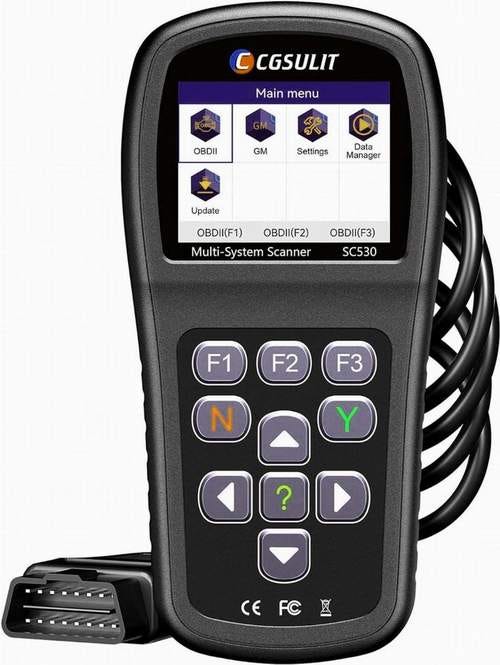
Pros: Tech 2 Scanners boast advanced scanning features, including OCR (Optical Character Recognition) technology, facilitating text recognition and conversion.
Cons: Yet, they may come with a steeper learning curve and higher price points.
Nadamoo Scanner
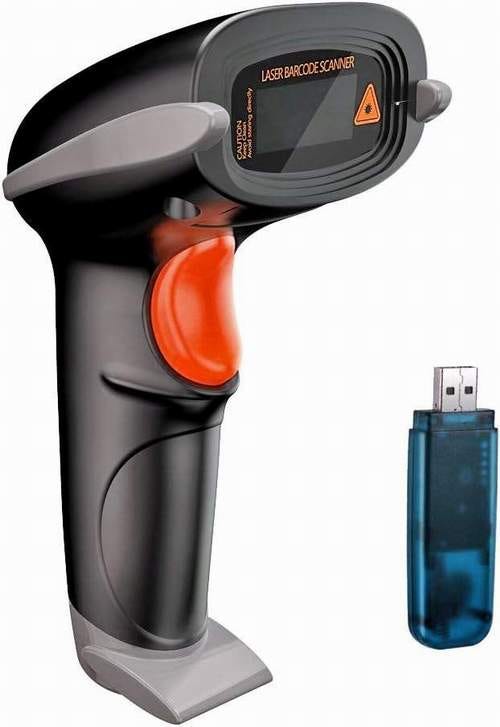
Pros: Nadamoo Scanners are lauded for their wireless functionality, enabling seamless scanning without the hassle of tangled cords.
Cons: On the flip side, their scanning speed may not match that of their wired counterparts.
Portable Magic Wand Scanner
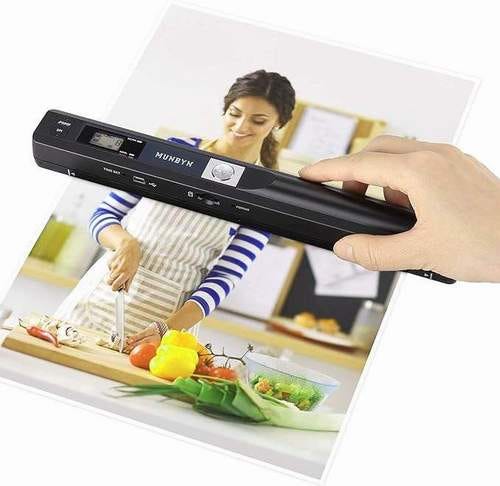
Pros: Portable Magic Wand Scanners offer unmatched convenience, allowing users to scan documents and artwork on the go, without the need for a computer.
Cons: However, they may sacrifice some scanning quality and resolution for portability.
Best Scanner for Artwork
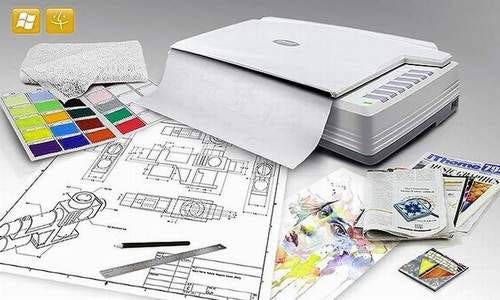
Pros: Designed specifically for artists, these scanners prioritize color accuracy and detail reproduction, preserving the integrity of your artwork.
Cons: Yet, they may be pricier than general-purpose scanners, catering primarily to niche markets.
Sol Scanner
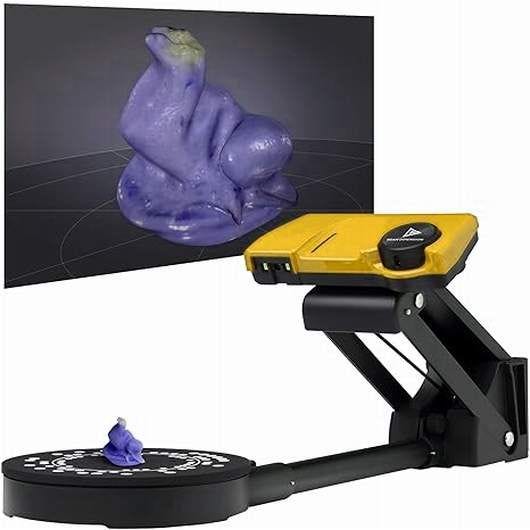
Pros: Sol Scanners are renowned for their high-resolution scanning capabilities, making them ideal for capturing intricate details in documents and artwork.
Cons: However, their bulkier design may not be suitable for users seeking portability.
Key Considerations
You should read these points before choosing a scanner.
- Resolution: Opt for scanners with higher resolution capabilities for crisp, detailed scans.
- Connectivity: Consider whether you need wired or wireless connectivity based on your usage preferences.
- Size and Portability: Evaluate the size and weight of the scanner, especially if you require portability for on-the-go scanning.
- Additional Features: Look out for features such as auto-document feeders, duplex scanning, and software compatibility to enhance your scanning experience.
Best Scanners
Whether you need the best scanner for photos, documents, or something else entirely, your demands will determine which model is the best. From many diverse areas, here are a handful of our favorites:
1. Fujitsu ScanSnap iX1500:
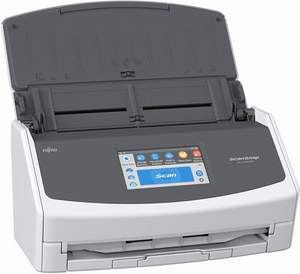
Great for home or small office use, this scanner offers speedy performance, wireless connectivity, and automatic document feeding.
- Pros: Speedy performance, wireless connectivity, automatic document feeding.
- Cons: Limited to home or small office use, may lack advanced features required by larger businesses.
2. Epson Perfection V600 Photo Scanner:
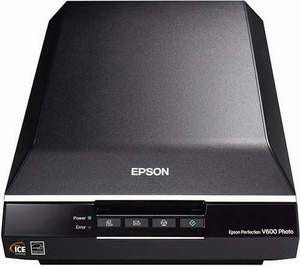
If you’re looking for high-quality photo scanning, this Epson model is excellent. It can handle prints, negatives, and slides with good color accuracy and detail.
- Pros: High-quality photo scanning for prints, negatives, and slides, good color accuracy and detail.
- Cons: Specialized for photo scanning, may not be optimal for document scanning needs.
3. Canon imageFORMULA DR-C225 II:
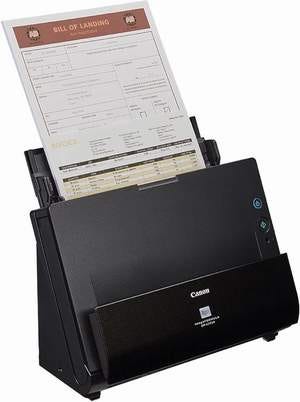
A reliable choice for businesses needing efficient document scanning. It’s compact, fast, and offers features like automatic duplex scanning.
- Pros: Compact design, fast scanning speeds, automatic duplex scanning.
- Cons: May lack advanced features found in higher-end document scanners.
4. Brother ADS-2700W:
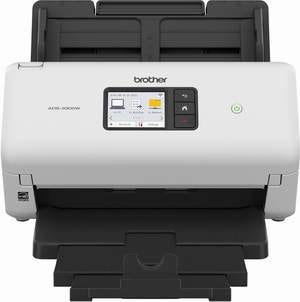
Another solid option for office use, this scanner provides fast scanning speeds, wireless connectivity, and compatibility with various document management systems.
- Pros: Fast scanning speeds, wireless connectivity, compatibility with various document management systems.
- Cons: May not offer the same level of precision and image quality as specialized photo scanners.
5. Epson WorkForce ES-500W:
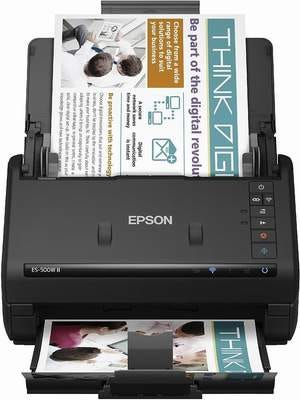
Ideal for busy offices, this scanner offers wireless scanning, rapid speeds, and a robust automatic document feeder.
- Pros: Ideal for busy offices, wireless scanning, rapid speeds, robust automatic document feeder.
- Cons: May be overkill for home users or small offices with lighter scanning needs.
6. Epson FastFoto FF-680W:
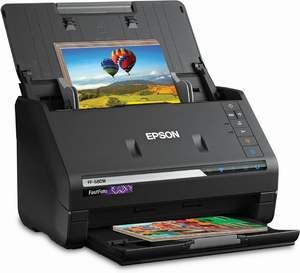
If you have a large volume of photos to digitize, this scanner is designed specifically for that purpose. It can scan photos quickly and even has features for auto-correction and restoration.
- Pros: Designed for high-volume photo digitization, quick scanning, auto-correction, and restoration features.
- Cons: Specialized for photo scanning, may not offer the versatility needed for document scanning tasks.
7. Plustek OpticFilm 8200i SE:
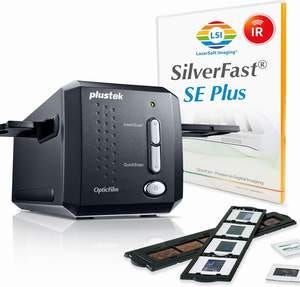
For dedicated film scanning, this Plustek model is highly regarded. It offers excellent resolution and dynamic range for preserving the quality of film negatives and slides.
- Pros: Excellent resolution and dynamic range for film scanning, preserves the quality of film negatives and slides.
- Cons: Limited to dedicated film scanning, and may not be suitable for general-purpose scanning needs.
Finding the best scanner requires weighing features, speed, and cost. If you know what you need and weigh the benefits and drawbacks of each scanner type, you should be able to make a well-informed decision. There is a scanner on the market that will improve your scanning experience, regardless of whether you value portability, high quality, or specific functionality for scanning artwork.





0 Comments